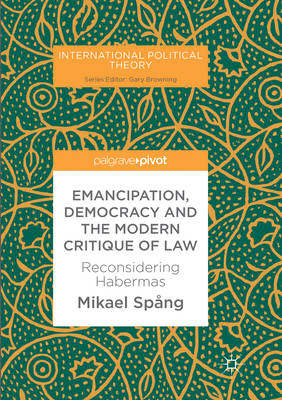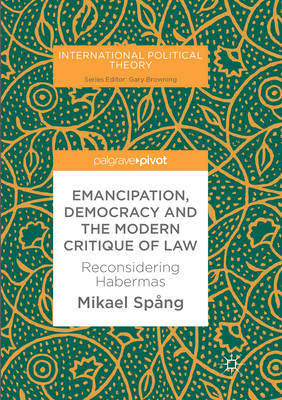
Bedankt voor het vertrouwen het afgelopen jaar! Om jou te bedanken bieden we GRATIS verzending (in België) aan op alles gedurende de hele maand januari.
- Afhalen na 1 uur in een winkel met voorraad
- In januari gratis thuislevering in België
- Ruim aanbod met 7 miljoen producten
Bedankt voor het vertrouwen het afgelopen jaar! Om jou te bedanken bieden we GRATIS verzending (in België) aan op alles gedurende de hele maand januari.
- Afhalen na 1 uur in een winkel met voorraad
- In januari gratis thuislevering in België
- Ruim aanbod met 7 miljoen producten
Zoeken
€ 80,45
+ 160 punten
Uitvoering
Omschrijving
This book focuses on Jürgen Habermas' theorising on law, rights and democracy in light of the modern critique of law. The latter tradition, which goes back to Hegel and Marx, has addressed the limitations of rights as vocabulary of emancipation and law as language of autonomy. Since Habermas claims that his reconstruction of private and public autonomy has an emancipatory aim, the author has chosen to discuss it in the context of the modern critique of law. More specifically, the study addresses the need to consider the dialectic of law, in which law is both a condition for emancipation and domination, when discussing what law and rights permit. It will appeal to students and scholars across the fields of political theory, law and legal criticism, as well as sociology and sociology of law.
Specificaties
Betrokkenen
- Auteur(s):
- Uitgeverij:
Inhoud
- Aantal bladzijden:
- 131
- Taal:
- Engels
- Reeks:
Eigenschappen
- Productcode (EAN):
- 9783319874210
- Verschijningsdatum:
- 7/08/2018
- Uitvoering:
- Paperback
- Afmetingen:
- 148 mm x 8 mm
- Gewicht:
- 197 g

Alleen bij Standaard Boekhandel
+ 160 punten op je klantenkaart van Standaard Boekhandel
Beoordelingen
We publiceren alleen reviews die voldoen aan de voorwaarden voor reviews. Bekijk onze voorwaarden voor reviews.









